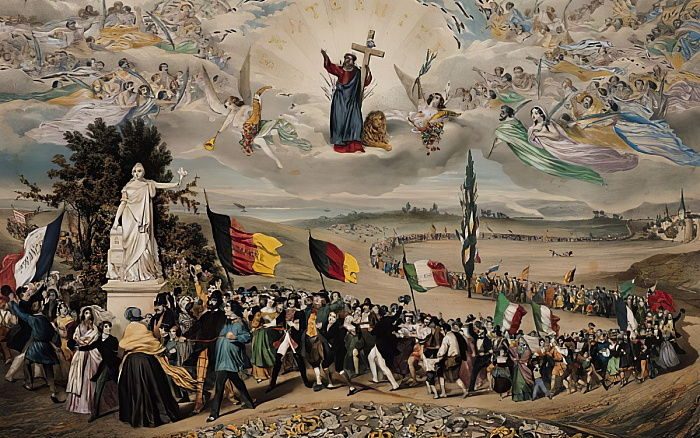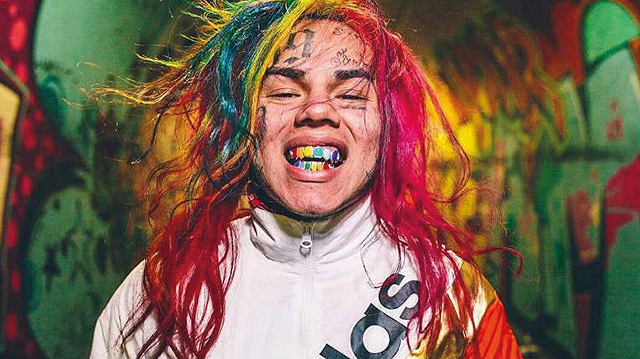
The political landscape of Europe is more divided now than ever, with nationalist movements gaining ground from Rome to Budapest. This is aligned with what many have called a global resurgence of right-wing populism. Countries such as Finland, Hungary, Italy, Croatia, Czechia, and Slovakia have seen hard-right parties hold the government. In the recent Polish parliamentary election, the right-wing Law and Justice party (despite not forming a government) demonstrated the persistent influence of nationalist rhetoric, with the election marked by debates surrounding questions of EU integration and anti-immigration stances.
Across Europe, a wave of right-wing populists has emerged, reshaping the political climate and challenging the traditional political order. Figures like Giorgia Meloni in Italy, Viktor Orbán in Hungary, and the UK’s Nigel Farage have capitalised on growing dissatisfaction with the political establishment. They advocate for nationalism, tight controls on immigration, and a return to so-called “traditional values.” A recent Eurobarometer survey found that nearly 60% of EU citizens expressed distrust in the political establishment, with populist parties gaining ground as a result.
This swing toward the right not only reflects a shift to the hard right within Europe, but also a global trend that reaches far beyond Europe’s borders. The rise of such figures mirrors the populist wave that took hold in the United States with Donald Trump, where anti-immigration sentiment, skepticism toward international institutions (in his case the UN and NATO rather than the EU), and the appeal of strongman leadership became key pillars of political discourse.
From Italy’s Meloni to Farage in the UK; these politicians share a rhetoric that challenges established norms and appeals to voters who feel alienated by the forces of globalisation. Earlier this year, Giorgia Meloni of Italy declared that “the globalist agenda threatens our sovereignty,” a sentiment echoed by Hungary’s Orbán, who has repeatedly described the EU as “overreaching in national affairs”. These leaders position themselves as anti-establishment reformists who will cut through the perceived red tape set up by governing bodies like the EU.
Recent studies indicate that immigration concerns remain high among European voters, with a Pew Research survey showing that over 50% of Europeans believe that migration should be more strictly controlled. Issues such as LGBTQ+ rights and gender equality have also become focal points for populist leaders, who frame these as symbols of a broader societal breakdown. In the case of Orbán and Meloni, they declare themselves staunch defenders of “traditional family values” and as agents against moral decay.
This cultural backlash is not just a reaction to domestic issues; it also plays into broader fears about societal change and immigration. For many in Europe, the push for gender equality or LGBTQ+ rights has become associated with a perceived loss of national identity, making it a rallying cry for right-wing populists who seek to return to more conservative values.
Post-WWII Europe sought to prevent the return of hard-right politics by establishing institutions like the EU and enforcing democratic safeguards. These measures were designed to prevent the rise of a new Mussolini or Hitler, ensuring that nationalism and authoritarianism would never again go unchecked. The current resurgence of far-right movements is now testing the resilience of these post-war protections, with populist leaders hoping to capitalise on people’s fears of cultural and demographic change.
In Ireland, the rise of Aontú, The National Party, and various grassroots anti-immigration protesats reflect that nationalist movements are not beyond the confines of Irish politics. Aontú, which promotes pro-life, socially conservative values and challenges EU influence, has gained traction among voters wary of the effect of globalisation on Ireland’s culture and economy. Meanwhile, protests in Dublin and beyond, signal a rising unease around immigration policies, mirroring similar anxieties across Europe.
Analysts have flagged that the rise of Eurosceptic leaders could jeopardise EU cohesion, with potential clashes on migration, judicial independence, and national sovereignty increasingly testing the limits of unity within Europe. Looking ahead, the challenge for the EU will be addressing the underlying grievances of disenfranchised voters.
This story is not simply the story of demagogues; it is also the story of vulnerable individuals. A story of those who feel left behind by a political system that no longer serves their needs. Many supporters of figures like Meloni, Orbán, and Farage are not driven by hatred or malice, but by a sense of economic and cultural displacement. Disillusioned with centrist politics and feeling abandoned by globalisation, they are often swayed by populist leaders who offer simple solutions and convenient scapegoats. As the political landscape continues to evolve the danger of deepening polarisation and the erosion of democratic norms is very real.



